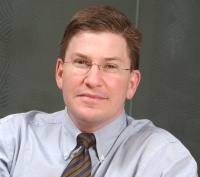A new medical education company has opened offering to produce CME that is free of commercial support.
Started by a Harvard neurologist and an executive, both with former ties to CME firm Pri-Med, along with a third partner, Lighthouse Learning receives no funding from pharmaceutical or device companies for the development of its curricula. Instead, the business model relies exclusively on licensing content nationwide, to medical societies, insurers and meetings companies.
“We believe there is a good degree of cynicism in the marketplace and that it’s time for the presentation of a new fresh model, one that is free from commercial and industry support,” Jon Leibowitz, president and CEO of the new organization, told MM&M.
The partners—who also include Dr. Martin Samuels, director of medical education, and Susan Pioli, VP, program recruitment and development—estimate the appetite for such a model to be strong, due to concerns in some quarters over the relationship between industry and medical education.
“In the big picture, any steps that CME providers can take to alter the perception of commercial bias in CME will serve us all well, and Lighthouse Learning is pursuing one model, one approach that we believe will have a positive impact,” Leibowitz said.
Lighthouse’s funding model is not without precedent, though, said Dr. Murray Kopelow, executive director of the Accreditation Council for CME. He told MM&M that 772—or 35% of the 2,225 ACCME-accredited providers submitting data for the 2009 ACCME annual data report—took neither commercial support nor advertising/exhibit income for their educational programs. A total of 943 providers, or 42%, accepted no commercial support. Many of these are providers accredited by state medical societies, and it’s not known whether any of them operate on a national scale, as the council has not analyzed data in this regard.
Regardless of the funding model, Kopelow stressed that all accredited providers must follow the council’s Standards for Commercial Support, which are designed to ensure independence in CME activities.
Lighthouse is aiming for provisional ACCME accreditation by next year and hopes to conduct activities in 2011 with another organization serving as joint sponsor. It will work in multiple formats—print, live and digital.
The firm will trade on the quality of its content and the independent process involved in curriculum development. Content in each of 12 major specialties is being created by nationally recognized directors. The Cleveland Clinic’s Dr. Steven Nissen, for instance, oversees cardiology. Lighthouse has not set forth any specific limits on the directors’ outside consulting arrangements.
Leibowitz left M|C Communications at the end of 2005 after helping to start Pri-Med. Dr. Samuels had also worked at M|C Communications, as medical director, and is currently a professor of neurology at Harvard Medical School. Pioli worked in medical publishing for 28 years, most of it in for Little, Brown & Co. as executive editor and for Elsevier/Butterworth-Heinemann as publishing director.








